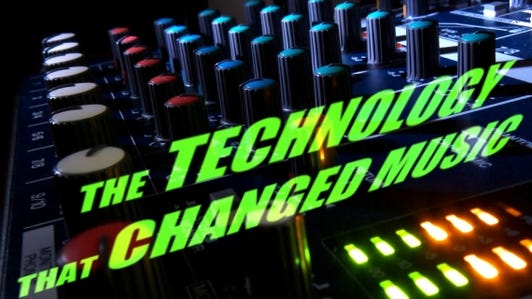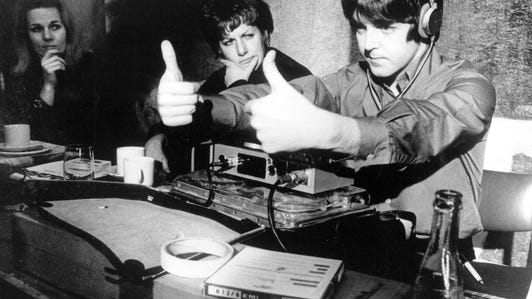DUBLIN — Pop stars complaining about the money they get from Spotify “should go back and talk to their record labels,” according to dance music veteran Steve Angello of Size Records and Swedish House Mafia.
Angello was speaking here today at Ireland’s annual Internet conference Web Summit. A DJ and producer who has worked with the likes of Will.i.am, Nicole Scherzinger and Usher, Angello is best known for being part of dance supergroup Swedish House Mafia that tore up dancefloors in the early noughties. He’s now the boss of Sweden-based Size Records, founded in 2003.
His comments addressed the growing controversy over the amount of money that reaches artists when their music is played on streaming services such as Spotify, Tidal and Apple Music. Stars such as David Byrne, Aimee Mann and Prince are among those complaining that streaming does not pay artists enough to make a living. The most high-profile critic is Taylor Swift, who pulled her music from Spotify and launched a stinging attack on Apple Music that prompted a U-turn on royalties by Apple.
But Angello is clear that it’s not the new streaming companies that are the problem when artists aren’t making a living. “Every streaming service does pay,” he said. The problem is seeing where that money goes. Labels and streaming services have non-disclosure agreements in place that prevent them from revealing their financial dealings, even to the artists themselves. That’s why many artists, such as James Blunt, have looked at their bank statements and immediately questioned the value of streaming, because it’s not clear who’s actually pocketing the cash.
From wax cylinders to Auto-Tune: The technology that changed music






+33 more
Angello was joined on stage by Brian Message of ATC Management, manager of Radiohead and Nick Cave, who said, “If you’re an artist signed to one of the major corporations, then you are absolutely going to have a question mark over ‘where’s the money?’ because the labels will keep the vast bulk of it.”
Artists can now choose more contemporary label services such as Kobalt or BMG to distribute their music, which Angello said provides “more transparency” than a traditional label.
Angello dismisses the outspoken critics of streaming. “It’s publicity,” he said, referring to the media storm surrounding Swift’s departure from Spotify. “A lot of people talk about it.” But he thinks that it’s shortsighted to deny your music to a potential audience. “I see it as record stores — why would I not allow a record store to release it? A 15-year-old might not to be able to afford Apple, Spotify, Tidal and Google. Why would you limit those guys from hearing your music?”
Pop will stream itself
- Spotify CEO: Irking Taylor Swift was a ‘big success’
- Streaming may save record industry, says one insider
- How streaming makes a hit record last longer
Message agrees that outspoken stands against streaming are merely “a big news story” and “an irrelevance…I don’t think it has too much of an impact on the big business stuff.” Nobody tell his client, Radiohead frontman Thom Yorke, who memorably described Spotify as “the last desperate fart of a dying corpse.”
Looking back to Radiohead’s 2007 release of the album ” In Rainbows“, which was offered to fans for as much or as little as they wanted to pay, Message admitted that was an experiment and was “never designed to be a business model.” But he notes that experiment was part of a move to a more direct relationship between musicians and their fans, without a record label or other middlemen. He sees a time when “that artist-fan relationship business becomes more and more the norm rather than a funnel of supply down this very structured supply chain.”
Message also believes that streaming is now more important than radio. “The thing about radio,” he said, “is you take a track to radio and it’s come and gone very quickly.” By contrast, putting music on a streaming service allows a track to live much longer.
Angello is unequivocal: “Downloading and streaming is the evolution of music services,” he said. “A lot of people are fighting it, but I think it’s the best thing that ever happened.”
Spotify declined to comment on this story, but has previously responded to criticism by creating spotifyartists.com, a website that details how it pays out royalties.




